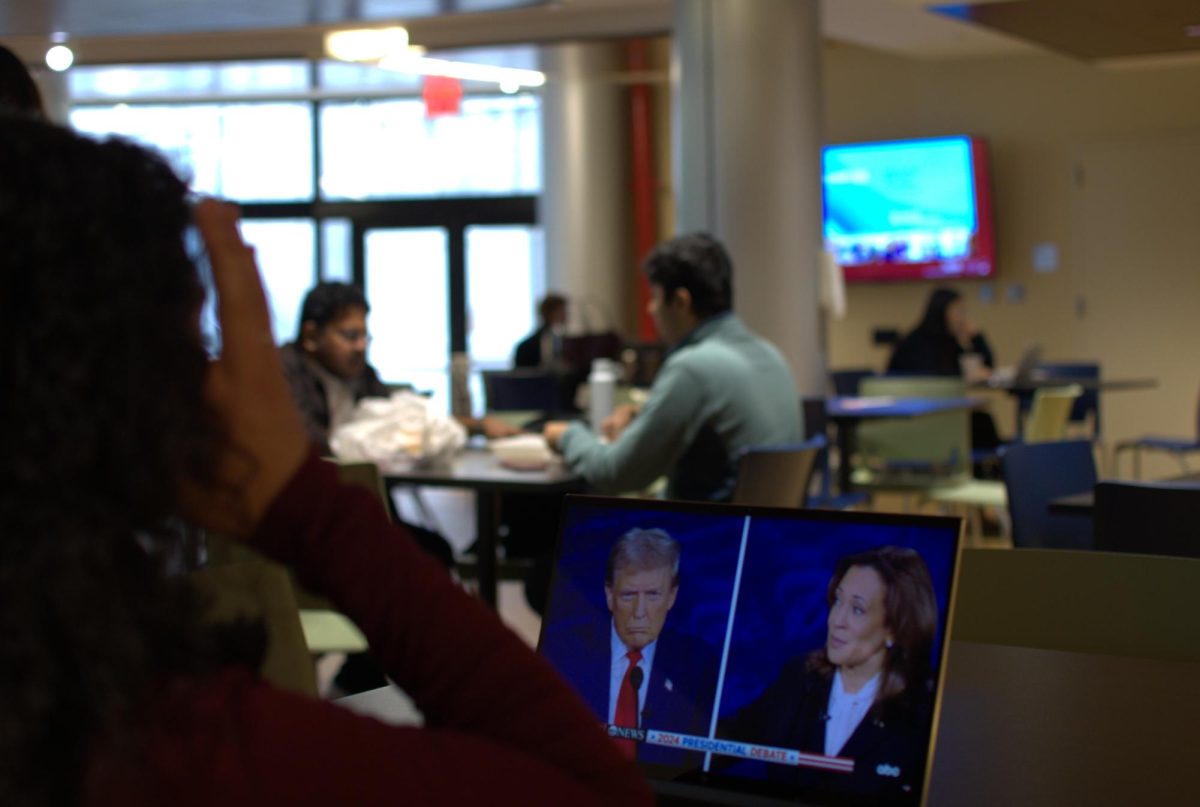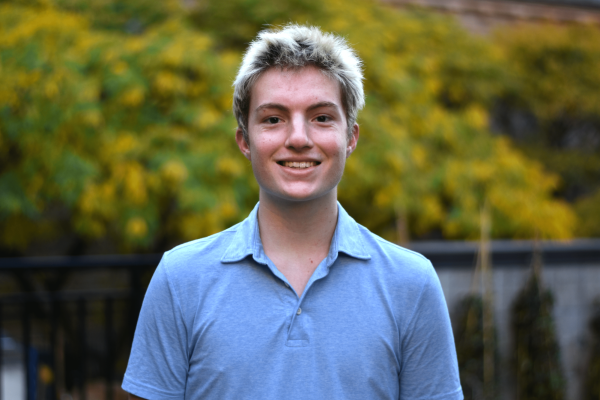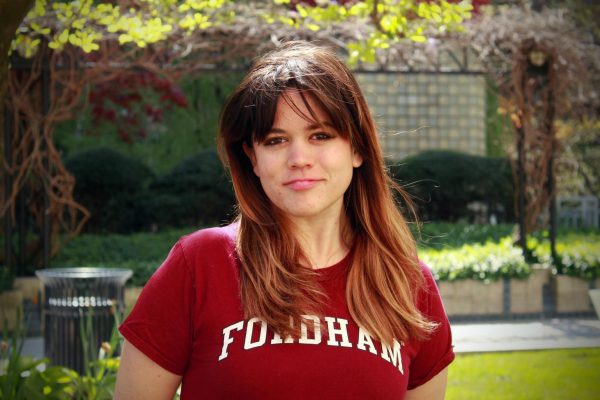Fordham community members came away from the debate divided: The candidates’ onstage behavior aroused determination to cast their vote in November in some viewers, but discouraged others.
Vice President Kamala Harris and former President Donald Trump met at the ABC News Presidential Debate on Sept. 10. Tuesday’s debate marked the first time Harris and Trump formally interacted.
“The first debate proved to me that there needed to be a change that I didn’t want to admit we needed in our government.” Jill Acosta,, FCLC ’28
Harris introduced her campaign to millions of Americans, many of whom might have been unfamiliar with her policies as vice president. Harris became the presumptive Democratic nominee after President Biden ended his reelection campaign on July 21, which was in part a response to overwhelming criticism of his performance at an earlier debate in June.
Biden’s critics were relieved by his decision to step down, as public discourse suggested his age made him unfit for the presidency. Jill Acosta, FCLC ’28, said the first debate confirmed her doubts about President Biden’s competency despite her reluctance to acknowledge it.
“The first debate proved to me that there needed to be a change that I didn’t want to admit we needed in our government,” Acosta said.
“It’s imperative that we pay attention to the news, and that we just don’t sit back and pretend that these issues don’t affect us.” Zara Dautruche, FCLC ’28
Acosta said it is crucial that young people get involved in this election.
“I think especially our demographic, we need to register to vote. You need to know the facts about who exactly you’re voting for,” Acosta said.
Zara Dautruche, FCLC ’28, emphasized the importance of young people participating in politics and staying informed.
“It’s imperative that we pay attention to the news, and that we just don’t sit back and pretend that these issues don’t affect us,” Dautruche said. “Because whether your rights are on the line or not, if you claim that you care about issues, pay attention. Show up. Vote, vote, vote.”
Dautruche said that young, first-time voters cannot afford apathy; the results of this election will affect them for the longest time of any age group.
Fordham students and faculty also commented on the issues that are most important to them on this ballot. Acosta said that she is most concerned about the future of abortion access and other reproductive healthcare measures if Trump wins the election.
“I have a lot of friends now who go to school in the south, and it just worries me that if they were to ever get into an accident or something were to happen to them, and they could not get an abortion and they were forced to keep (the) pregnancy,” Acosta said. “I would never want that upon them.”
Alma Rodenas-Ruano, associate professor of biology and director of integrative neuroscience program, said that she will vote for Harris. She said Trump will infringe on personal freedoms and the balance of power among the branches of the federal government.
“I’m really concerned about democracy in this country, I think any issues that involve maintaining the democracy, allowing for the three systems to check each other, preventing autocracy, as I feel would happen with Trump, and issues of women’s personal freedoms are important to me,” Rodenas-Ruano said.
The debate might not have swayed many voters in the Fordham community, but in a close race, both candidates needed a strong performance to maintain momentum, rally donors and mobilize volunteers in their campaigns’ final stretches.





Sabrina Manero • Sep 25, 2024 at 3:20 pm
Wow, Tucker Flynn. This was incredibly insightful. Thank you for your input.